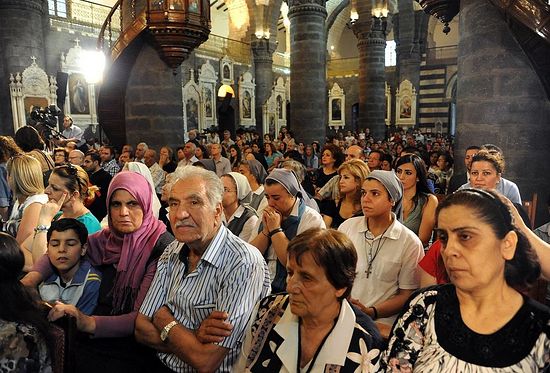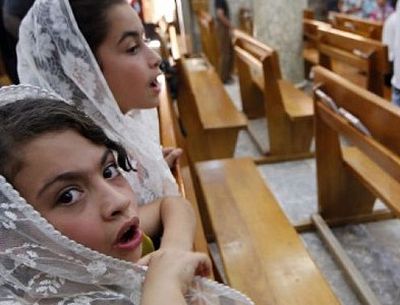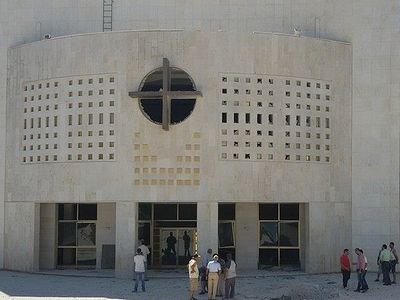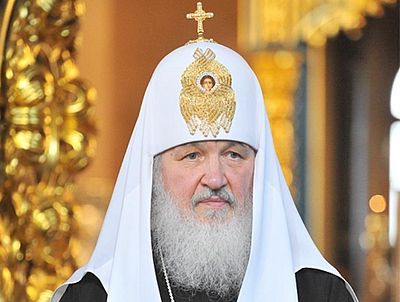Source: Notes on Arab Orthodoxy
October 14, 2015
All Christian political parties, movements, and blocs are avoiding taking any public position about the Russian military intervention in Syria, despite the fact that the division between Christians over the Syrian crisis is clear, as is their division over every issue. There are those who support the regime and hope for its victory and there are those who are still betting on the victory of the opposition and the defeat of the regime, in addition to a a third group who see both the regime and the opposition as having failed. With the exception of a lone statement by the leader of the Lebanese Forces, Samir Geagea, that the Russian intervention is in order to prevent the fall of the regime in Damascus, the other parties such as the Free Patriotic Movement, the Phalange, the National Liberal Party, and even the institutional Church are still keeping a systematic silence about the issue. Policy statements issued by them are deliberately ignoring the whole issue without even making a hidden reference to it.
This political Christian silence does not mean that public opinion is unconcerned about what is happening. The matter is on everyone's lips in Christian circles. The statement attributed to the Russian Orthodox Church only sharpened the debates and raised them to unprecedented levels in a society that just a short time ago was fearful of the arrival of takfiris and ISIS in the Lebanese arena. This terrifying prospect, to which is added images and reports in the media about the suffering of Iraqi Christians and Yezidis and the humiliation to which they were subjected after their women were sold in slave markets, in addition to being treacherously murdered by their neighbors. All of these reports have contributed to lowering morale and raising tension.
In the opinion of political activists the policy of silence among Christian parties is justifiable, since no one wants to make a public bet on one side or the other while the Syrian conflict rages, repeat the tragedies and civil wars that occurred in the past, and pay the price in damage to economic and trade interests and damaging Lebanon's relations with the Arab countries which, despite their crises and divisions, have room to distinguish friend from foe. What is spreading over social media only belongs those posting it on a personal level, not groups or parties. More importantly, nothing is a foregone conclusion in the Syrian conflict and the limits of the Russian intervention are not clear, nor is the feasibility of this intervention resolving the conflict for the whole of Syria and re-imposing the regime on regions outside of its control. Will Russian and Iranian forces remain permanently deployed in Syrian cities and villages in order to preserve the regime?
Before analyzing the position of the parties and the silent Christian leadership, one must examine the position of the churches of all denominations, both Catholic and Orthodox, which have not been pleased-- so as not to say disapproving-- of the behavior of the "Syrian Opposition", especially after the direct harm done to Christians in Syria, including the abduction of Metropolitans Paul Yazigi and Youhanna Ibrahim and dozens of priests, in addition to the dozens who have been kidnapped by ISIS since its assault on Assyrian towns and villages in the Khabour region of Syria. In this sense, the churches cannot stand with those who kill their members and threaten their very existence and so they are in favor of every effort that will lead to the return of order and remove the threat to Christians in Syria, Iraq and Lebanon. The position of the Russian Deputy Foreign Minister Mikhail Bogdanov during his meeting with Orthodox figures at the Phoenicia Hotel last year is still fresh in people's ears: "We shall not let the Christians fall and be exterminated in the Middle East." At the time, many didn't realize that the Russians weren't joking.




